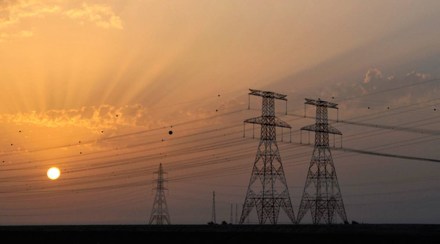In a relief to Anil Ambani-led BSES Yamuna Power and BSES Rajdhani Power, the Supreme Court held that electricity regulator DERC is not permitted to revise or redetermine the already fixed power tariff for discoms during the “truing up” or “prudence check” exercise. “Truing up’ stage is not an opportunity for the DERC to rethink de novo on the basic principles, premises and issues involved in the initial projections of the revenue requirement of the licensee. ‘Truing up’ exercise cannot be done to retrospectively change the methodology/principles of tariff determination and reopening the original tariff determination order thereby setting the tariff determination process to a naught at ‘trueup’ stage,” a bench of Justices SA Nazeer and Krishna Murari said while ruling in favour of private discoms.
The apex court said that “revision or redetermination of the tariff already determined by the DERC on the pretext of prudence check and truing up would amount to amendment of tariff order, which is not permissible in law”. The issued before the apex court related to change in methodology in computation of Aggregate Technical and Commercial (AT&C) losses and depreciation, disallowance of salary for Fundamental Rules and Supplementary Rules (FR/SR) structure, disallowance of interest accrued on consumer security deposit retained by Delhi Power Corporation Ltd, disallowance of Fringe Benefit Tax and reduction in Million Units (MUs) in relation to Enforcement sale for the purpose of calculation of AT&C Loss.
Also read| Powering discom cash-flows: How ailing discoms can shore up revenues
BSES companies, while submitting that the Aptel’s findings were contrary to the binding DERC Tariff Regulations, had argued that the regulator cannot ‘change the rules of the game after it has begun’ in the ‘truing up exercise’ and in the guise of truing up, the DERC cannot amend a tariff order. They alleged that since privatisation, the ARR determined by the DERC was not even sufficient to meet the actual power purchase cost which has led to creation of a huge revenue gap.
DERC, in repeated disregard to its statutory regulations and its own statutory advice, had refused to make periodic increase in the tariff rate. The actions of the DERC have resulted in a situation where the discoms are deeply indebted and have been forced to borrow/take loans to fund their day today operations which, in turn, have also dried up, leaving the discoms without adequate monies to pay their suppliers, senior counsel Arvind Datar and Dhruv Mehta argued on behalf of the discoms.
Also read| PM Modi to launch Rs 3.03 trillion scheme for power discoms today
Opposing their pleas, senior cousnel Nikhil Nayyar, appearing for DERC, argued that one of the facets of the tariff determination exercise is the process of ‘truing up’. Since the initial tariff order is prepared by the DERC based on the projections submitted by the discoms, the subsequent tariff order is issued after the financial year pursuant to the ‘truing up’ exercise.
“The process of ‘truing up’ requires the DERC to carry out a prudence check. A prudence check is not a mere accounting or mathematical exercise. A prudence check requires a scrutiny of reasonableness of the expenditure incurred or proposed to be incurred by the Discoms and also such other factors that the DERC considers appropriate for determination of tariff,” Nayyar contended.The tariff appeals were filed before the APTEL challenging DERC’s certain findings in the tariff order of August 26, 2012 for truing up of financials for financial year 2008-09 and ARR for financial year 2011-12.
